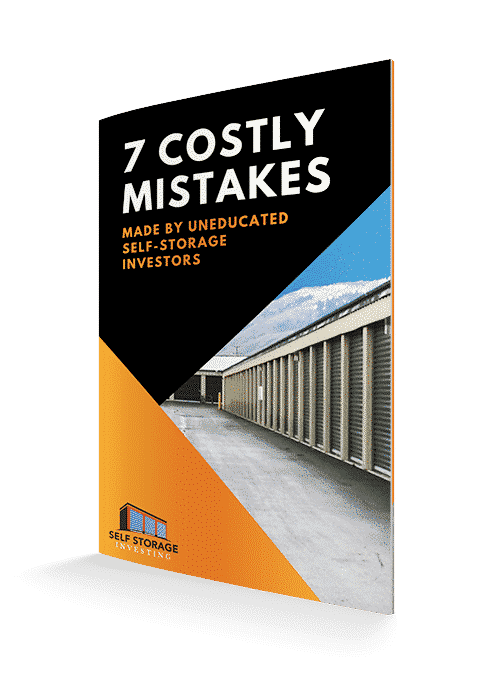A big fork in the road of life is how you choose to invest what you have: your time, your thoughts, your feelings, your efforts, and ultimately your money. Even if you don’t have much of the latter, you can still find a genius way to achieve a satisfying and reward-reaping investment in commercial real estate. We are happy to show you some ways to get started, so try to take full advantage of the tips to invest in real estate, we will detail below!
Is Real Estate Investing the Best Way to Invest?
Every ambitious mind seeks to invest in real estate. While the stock market may be the first option for many, real estate investing is the ultimate investment dream for most folks. It has both status and glory while generally making greater profits for the investor.
Comparing stock and real estate investments tells us, while both are viable options, being a real estate investor comes with fewer risks since real estate offers more portfolio diversification while lowering investment risks. The stock market is affected by too many factors compared to the real estate market.
Secondly, the returns it produces in terms of value appreciation, rental collection, the ability to reinvest, and tax advantages are steadier, more dependable, and higher in total for owning rental properties than stock investments.
Can You Get Rich by Investing in Real Estate?
There is money in real estate, but you can’t get rich overnight by investing in properties. You have to be patient and smart and gradually accumulate wealth. How? The real estate value rises slowly, and you make a profit gradually, which you can reinvest and reap the benefits after several years. In the meantime, you can generate revenue using your real estate like rental properties (perhaps in a lease option, as delineated below).
How Do You Start Investing in Real Estate?
Most folks opt not to invest in real estate since they lack the funds to put a large sum down, or it scares them too much to risk all their savings in real estate. However, the fact is that real estate is one of the most promising fields of investment. You do not actually have to have your own funds to join the coveted ranks of real estate investors.
There are a variety of options where you can make simple but clever real estate investment decisions while holding onto your money and peace of mind. Sounds fascinating, doesn’t it? Let’s intrigue you some more by taking you through ten ways to invest so you can figure out which option works best for your particular financial ambition scenario.
10 Tips to Invest in Real Estate:
1. Seller Finance Your Way into the Real Estate Investor League
A major obstacle that blocks the path of real estate investment enthusiasts is that they can’t take a loan out in the form of a conventional bank mortgage in a timely, trouble-free, and economical enough way, assuming they can at all.
That’s where seller financing comes in as the solution.
How Does Seller Financing Work, Exactly?
When the option of being financed by regular financing institutions fails, seller financing sounds like quite an alternative to ponder. Instead of asking the bank for a financing plan, you will ask the seller for the purchase cost upfront and proceed to pay him/her back with a plan, the terms of which can be agreed upon by both parties in a manner that is mutually acceptable. It can be paid back in monthly payments like a regular mortgage, or it can be in the form of a balloon payment after a certain number of years.
The Pros & Cons of Seller Financing for the Buyer
The obvious upside is that a buyer-investor gets to invest in real estate with little or no money in a real estate market downtime and then sell after the market is back up, pay back his/her loan, and make a profit. But be aware that you’ll have to pay a higher interest rate than a normal bank mortgage.
What’s in It for the Seller?
Sellers may find it hard to sell their property in a buyer’s market when supply exceeds demand. If they take the risk of offering the buyer the financing upfront, not only will they get to sell their less-than-popular real estate, but they can also ask for a premium for the very act of picking up the tab at the outset.
2. Become a Real Estate Investor Through the Lease Option
We have all been tenants at some point in our lives, and we have all gone through those moments when paying the rent, thinking: “Why would I fork over my hard-earned money for a property that will never be mine? I wish there was a way these payments could go toward owning the place someday!” Well, we love to be the bearers of good news: There is a way, called the lease option.
How Does the Lease Option Work?
In the lease option, you have the choice of signing a lease agreement with a seller, promising that in exchange for a premium added to your monthly rent, you will purchase the property after a certain period, depending on the terms of the contract you sign up front. The sum of these monthly premiums, which could be up to 10 percent of the standard monthly rent rate in the current market, will be considered the gradually-paid down payment for the house, should the buyer decide to take advantage of the buy option.
The Pros & Cons for the Buyer/Investor
What is pretty advantageous for you as the investor in using the lease option is you get to buy a property if you choose to, and whenever you are ready – which could be up to three years from now – at today’s price.
What makes it even more attractive is that the seller will have to take it off the market as soon as they sign the lease/purchase agreement with you. And you can accomplish that by handing over just one percent of the property’s selling price as a down payment for leasing the property. The only disadvantage is that if you forfeit on your promise to buy, you will lose the monthly premiums you have been paying. Even so, this is still a pretty sweet deal. Judging from how popular it has been, I’d say many agree!
Why Would the Seller Do This?
Real estate owners who have been trying to sell their property for a while to no avail consider the lease option as a good one since they get to have the relative peace of mind knowing it might get sold somewhere down the line. Even if it doesn’t, they will have made some profit by receiving the monthly premium added to the rent. It can be a win-win in a market that feels stagnant for the sell-minded owner.

3. See What Official Financing Institutions Can Offer: Home Equity Loans
Most of us who have aspirations to make real estate investments already own or have mortgaged a property. This gives you the option to take out a loan based on the value of the real estate you own or take a second mortgage on the one you are already making payments for.
What is particularly appealing is that these home equity loans are not granted to finance the first real estate property you own; they are only given to those who want to refinance another piece of real estate. It’s like they’re designed for those of us who want to start a real estate investing career. Neat, huh?
How Do Home Equity Loans Work?
An appraiser is sent to estimate the value of the property you already own or have been paying regular and timely payments on (your first mortgage). Pay special attention to the fact that this is only after your credit history has been determined as adequate enough in the first round of pre-approval checks.
Once the property value is compared against the loan interests and the loan-to-value ratio is considered to make financial sense for the bank, you will be given your second mortgage, called a home equity loan. This is a pretty common practice, and it is how many become novice real estate investors – and successful and stress-free ones, as well.
What Are the Pros and Cons of Taking Out a Home Equity Loan?
What makes this such a popular option with the average-income real estate investment hopeful is that it’s secured against the value of a property you are likely to be able to make payments on. The downside is it is almost always offered in shorter terms than your first mortgage, so you need to be pretty certain that you can pay larger installments in a shorter period.
4. See if Unofficial Financers Can Fund You: Hard Money Lenders
When official banks turn you down, you can always knock on the door of unofficial ones: hard money lenders. When you approach a bank, you have to be proven qualified to get a loan, which has requirements that small-time investors can’t easily meet. But when you go to a private group/individual lender, they won’t put you through the red tape, so getting the loan is actually feasible.
What Are the Pros and Cons?
Well, first off, this can be done fast. You call to schedule a meeting, have a discussion, and sign a contract within days.
But the downside is that since the hard money lender cannot know whether you can and will pay them back and since they are venturing their capital, they often have two substantial requests. First, they ask you to use a property you already own as collateral, and in case you default on your payments, they will collect. And second, the interest rates added to the payments can be considerably higher, but if you make good money from your investment and can afford to pay them off, this is still an excellent opportunity.
What Does a Lender Gain if I Use Their Hard Money to Invest in Real Estate?
Well, hard money lenders, often called property flippers, see it as a win-win scenario. If you make your payments fully and in a timely manner, they have collected a reasonable profit from the high interest-rate. And even if you default, they can remodel and sell the collateral, still making big profits. So, they are pretty highly motivated to help you become an investor.
5. Consider Micro Credits for Getting a Foot in the Door of the Macro-Investment World
A too-low credit score is what keeps most of us from qualifying for loans we need to invest in real estate. But if you are just a little short of having the initial capital to invest, microloans will be what you need since qualifying for them have considerably fewer requirements.
How Does Micro-Financing Work?
There are two types of microloans. There’s one that some banks offer, along with micro-insurance and even some lessons on how to make money off them, with really fair, reasonable terms. Another kind is made possible by peer-to-peer financing, where a person or group provides funds for someone to start their own small business or get started on a small-time investment.
6. Look into Special Government Scheme Loans for Low Down Payments
When you apply for a loan, your credit history is checked. If it’s poor or you have never taken out a mortgage, your income will be taken into account. If you are considered an average or below-average income earner, you’ll qualify for loans like USDA.
These loans are offered by the government to motivated investors to develop under-populated and underdeveloped areas that usually house less than ten thousand residents. These loans can be secured with as little as zero down payment and fairly reasonable interest rates.
The Pros & Cons of State-Provided SGSL
The plus side is that you don’t need a stellar credit history or high regular salary to get these loans, and they don’t require a down payment or charge a lot of interest – qualities that most of us are looking for when we’re trying to get in the real estate investment game.
But since the investment property is often in rural areas or developing suburbs, it may take a while for the real estate value to go as high as you’d want it to. But, once the area starts getting major developments, everyone will want a piece of it. So, if you are not in a hurry to make a big profit, you can make a lot of it in due time by taking out a government loan for a property in underdeveloped areas.
7. See if Self-Storage Investments Work for You
One of the smartest, least likely to fail or hassle, and easiest money-making investments in real estate is self-storage investment. A 87.65 billion industry in 2019, with a ten-percent permanent customer-base, you are guaranteed a constant cash flow with minimum involvement.
Purchasing Shares
You can buy shares in a self-storage real estate investment trust (REIT), which is usually used to finance modern storage facilities in more upscale neighborhoods or medium-aged builds in midtown areas or suburbs. Either way, your return will be on-time and on-going. No matter what the economy’s status is, people will always need storage space, making this possibly the best way to invest in real estate.
8. Find Out if an Equity Partnership Will Give Your Real Estate Investments a Jumpstart
We all want to make it big all on our own. But what if we can bring in big money faster by working with a partner? When you only have half or a part of the sum required to start a real estate investment, you can team up with another interested party, pool your capital, and go in together. When the property reaches its peak selling price, you can sell and go your separate ways. No harm, no foul, and a cash load gained.
How Can Partnership in Real Estate Investment Work?
There are two types of investors who would embark on a real estate investment deal with you as a partner: institutional investors and individual ones.
Institutional partners are typically interested in commercial properties that are well-established and eye-catching in terms of competitive and sustainable property value. Conversely, individual investors who show interest in a partnership in real estate are usually people in a similar situation as yours, looking for something less intimidating and not overly-ambitious until they can afford to take bigger risks.
Possible Pros & Cons of Real Estate Investment Partnership
A major perk is that this gives you a chance to enter the real estate investing realm with the cash you already have while also having someone to provide support when things get dicey financially.
However, it can be a nuisance if you end up with the wrong kind of equity partner, incurring legal and financial costs on you, not to mention a headache. So, it is important to be clear on the kind of property that is right for each party upfront, as well as all the applicable terms and conditions of the partnership.
9. Share-Owning in Real Estate Investment Trusts
Another form of investing in real estate in a partnership format is buying shares from an institutional investor group called a real estate investment trust (REIT).
One of the chief reasons many people shy away from equity partnerships is because they are trying to avoid having their capital getting tied up in a bad divestment or with the wrong partner. What REITs do differently is that they consider your share liquid as opposed to solid, which means you can sell your share whenever you want, instead of having to wait until someone buys your share or the entire property is sold. Especially if you invest in a self-storage REIT, you have a great chance of making a significant profit from this type of investment.
10. By Trading Properties, You’ll Invest in a Larger Property by Paying a Little Extra
If you have some cash you want to put toward making a start in real estate investment, but you find it insufficient to purchase a new piece of real estate, an option that can work in your favor is swapping properties with a bigger one. You then only have to pay the difference in value. This is called a like-kind exchange or section 1031 exchange.
How Do Section 1031 Exchanges Work, & What Are Their Upsides and Downsides?
You have your property value appraised, add it to the cash you already have in hand, and look for a piece of real estate with good prospects whose owner would be willing to trade.
Going this route is beneficial since you don’t need to take out any loan. Moreover, you will have legally evaded the capital gains taxes incurred in the process of buying and selling. This option is a rare rose that does not come with a thorn, as there are no real downsides.
The Bottom Line
Investment, we believe, should be important to anyone who’s looking to make a bright future for themselves. Real estate might actually be one of the best ways to make it big in the investment world since it offers steady revenue with lower risks. However, you can’t expect to get rich fast; you need to be patient and educate yourself on different ways of getting started via a sustained effort in order to make it a successful investor.
The very first step is to consult with experts in the field and see what works and what doesn’t, what you can expect, and how to get started. We offer all three. We have been helping individuals invest in self-storage for a long time, and we can help you make your real estate investment dreams come true!







